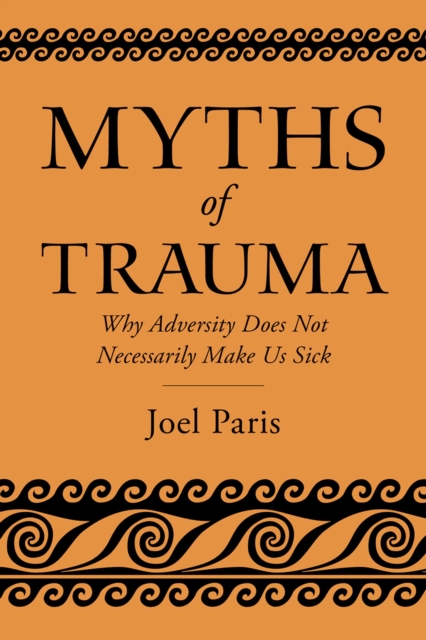
Myths of Trauma : Why Adversity Does Not Necessarily Make Us Sick EPUB
by Joel Paris
EPUB
Description
Post-traumatic stress disorder (PTSD) is a serious and sometimes debilitating mental disorder. Yet only about one in ten people who are exposed to significant traumatic events develop PTSD. Since its inclusion in the Diagnostic and Statistical Manual (DSM) in 1980, the definition of PTSD has been controversial. Various changes made to the criteria have gradually widened the diagnostic criteria, which now include experiences that may not involve direct exposure to trauma, which in turn has led to PTSD to be over-diagnosed: clinicians may be tempted to seize on traumatic events in a history as an explanation of mental disorders, while patients may automatically receive the diagnosis if they experienced major trauma in the past. Myths of Trauma is a timely and important book that probes the sensitive, emotional, and often controversial subject of trauma, the difficulties associated with its diagnosis, and the over-diagnosis of PTSD. Trauma has become a catch-all for many kinds of adverse experiences, when in reality, people are significantly resilient to traumatic events. The book also explores how responses to trauma develop in the context of multiple interwoven risk factors, ranging from genetic vulnerability effecting sensitivity to the environment, as well as past adversities; how trauma has become a political issue that interferes with unbiased scientific study of its effects; and how trauma narratives can have a darker side when patients use them to justify feelings of victimhood that interfere with their own agency. Integrating and analysing the vast quantities of scientific literature on the topic, Myths of Trauma teaches us not to think about trauma in isolation or as one thing rather than many different things. The experiences of trauma deserve a place in clinical practice, and it is time for PTSD to be viewed through a more complex and multidimensional lens within the broader biopsychosocial context.
Information
-
Download - Immediately Available
- Format:EPUB
- Publisher:Oxford University Press
- Publication Date:04/10/2022
- Category:
- ISBN:9780197615782
Other Formats
- PDF from £33.53
Information
-
Download - Immediately Available
- Format:EPUB
- Publisher:Oxford University Press
- Publication Date:04/10/2022
- Category:
- ISBN:9780197615782






